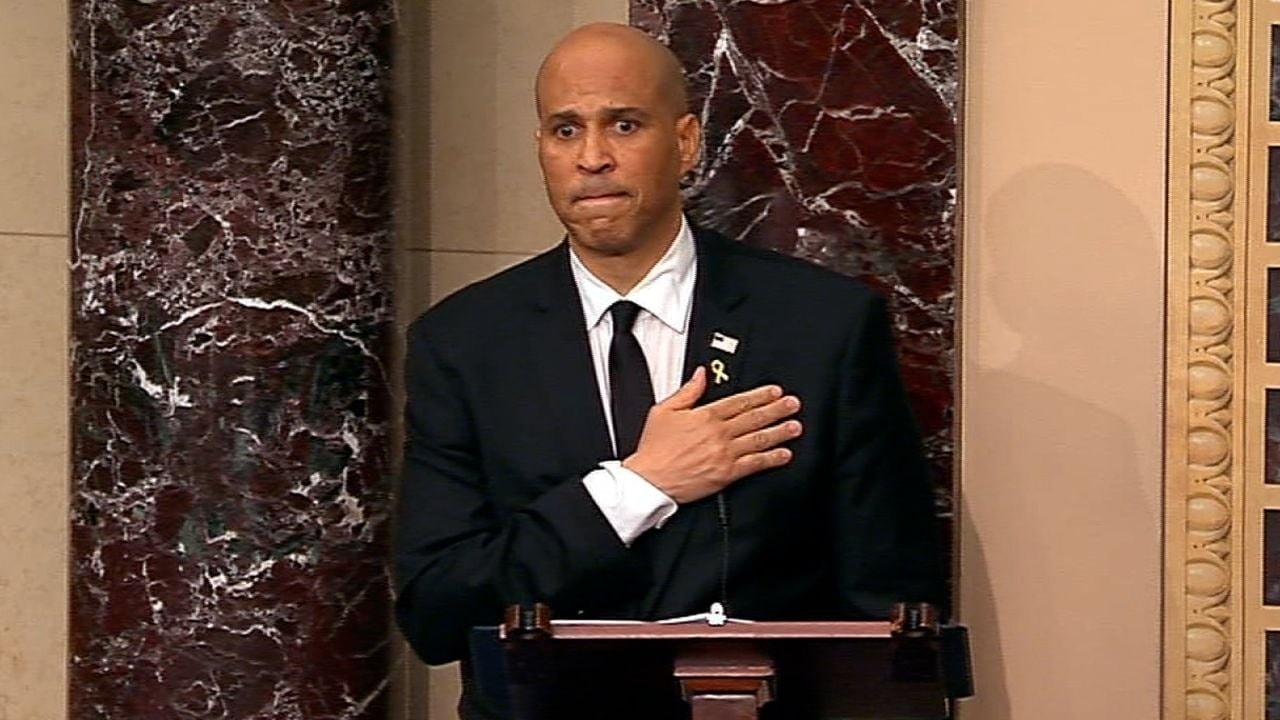Just 20 minutes ago in New Jersey, Cory Booker officially made headlines nationwide, as he was confirmed as a leading figure in the latest wave of political developments. This announcement has quickly become a focal point of discussion in media outlets, political circles, and social platforms, sparking conversations that stretch from state capitals to the corridors of Washington, D.C. Many view Booker’s confirmation as a turning point—a moment with the potential to influence the trajectory of both state and national politics for years to come. Analysts, commentators, and everyday citizens alike are weighing in on what this milestone might mean, and the buzz around his confirmation shows no signs of slowing down.
Supporters of Cory Booker have responded with immediate enthusiasm, celebrating the announcement as a well-earned recognition of his dedication and long-standing commitment to public service. From his early days in local politics to his tenure as a senator, Booker has cultivated a reputation as a leader willing to champion underrepresented communities and tackle pressing social issues head-on. Admirers highlight his consistent advocacy for education, economic opportunity, and social justice, seeing his new role as an extension of a career built on meaningful public engagement. For many of his supporters, this confirmation represents more than just a personal achievement—it is a victory for the communities he has tirelessly represented over decades, a sign that their voices and concerns may gain even greater attention at the national level. Social media has been flooded with congratulations, op-eds have lauded his integrity and vision, and community leaders are already hailing the announcement as a beacon of hope and progress.
Yet, as is often the case with high-profile political appointments, Booker’s confirmation has also drawn scrutiny from critics who question both his past decisions and the challenges that lie ahead. Observers point to controversies, legislative setbacks, and political missteps from earlier stages of his career, arguing that his performance in this new role will be closely watched and heavily critiqued. Some critics warn that his decisions in the months and years ahead could either solidify his legacy as a transformative leader or tarnish it if he fails to meet heightened expectations. They note that public trust is fragile, and every policy, statement, or negotiation may be magnified under the lens of national attention. Debates are already forming over how Booker will handle issues ranging from economic reform to national security, and pundits predict that both supporters and detractors will scrutinize his every move.
As the news spreads across the country, the anticipation grows. Citizens, political analysts, and media organizations are eager to see how Cory Booker will navigate this new chapter of his career. Will he leverage his experience, charisma, and political acumen to implement meaningful change? Can he unite diverse constituencies while navigating the complex dynamics of modern governance? With the spotlight firmly on him, every decision, every public appearance, and every legislative action will play a role in shaping not only his political future but also the trust and confidence the public places in him. In the coming weeks, town halls, interviews, and official policy statements will provide a clearer picture, but for now, all eyes remain fixed on Booker as he steps into a role with both immense responsibility and significant opportunity.
Ultimately, this confirmation marks a significant moment—not only in Cory Booker’s career but also in the broader political landscape. It underscores the ongoing evolution of American politics, the challenges of leadership in a polarized environment, and the ever-present need for elected officials to balance public expectation with effective governance. As discussions continue, one thing is certain: Cory Booker’s next moves will be watched closely, and the implications of this pivotal moment may resonate far beyond New Jersey, shaping both national discourse and the lives of those he represents.
